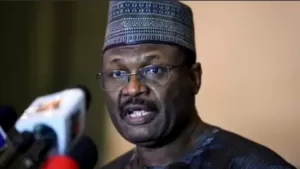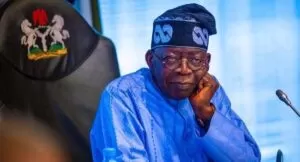Heavy Security at The National Assembly Complex as Tinubu Arrives to Present 2025 Budget

The National Assembly Complex in Abuja has been fortified with heavy security measures as President Bola Tinubu arrives to present the 2025 budget proposals and estimates. This presentation is a significant step in advancing the administration’s economic agenda, and the security measures are likely aimed at ensuring a smooth and secure process.
The proposed 2025 budget is estimated at N47.9 trillion, representing a 36.6% increase compared to the 2024 Federal Government of Nigeria (FGN) aggregate expenditure estimate of ₦35.06 trillion. The budget includes a borrowing plan of ₦9.22 trillion and an oil benchmark price of $75 per barrel for 2025.
Key Provisions of the Adopted Framework
The Medium Term Expenditure Framework (MTEF) and Fiscal Strategy Paper (FSP) adopted by the Federal Executive Council last November provide the foundation for the 2025 budget. Key provisions of the adopted framework include:
- Domestic Crude Oil Production: 2.06 million barrels per day for 2025
- GDP Growth Rates: 4.6% in 2025, 4.4% in 2026, and 5.5% in 2027
- Exchange Rate: ₦1,400 to the US dollar for the three-year period
- Inflation Rate: 13.2% in 2025, 11.5% in 2026, and 9.5% in 2027
President Tinubu’s Economic Agenda
The 2025 budget proposal is a critical component of President Tinubu’s economic agenda, which aims to promote economic growth, reduce poverty, and improve the standard of living for Nigerians. The administration has outlined several key priorities, including:
- Infrastructure Development: Investing in critical infrastructure, such as roads, bridges, and public transportation
- Human Capital Development: Improving access to education and healthcare, and investing in programs that promote skills development and entrepreneurship
- Economic Diversification: Promoting economic diversification by supporting the growth of non-oil sectors, such as agriculture, manufacturing, and services
Reaction from Lawmakers
Lawmakers have expressed mixed reactions to the proposed 2025 budget. Some have praised the administration’s efforts to promote economic growth and reduce poverty, while others have raised concerns about the budget’s feasibility and the potential impact on the country’s debt profile.
“We welcome the President’s commitment to promoting economic growth and reducing poverty,” said Senator Godswill Akpabio, Chairman of the Senate Committee on Finance. “However, we must carefully review the budget to ensure that it is feasible and aligns with our national priorities.”
Conclusion
The presentation of the 2025 budget proposal by President Tinubu marks a significant step in advancing the administration’s economic agenda. As lawmakers review the budget, they must carefully consider the potential impact on the country’s economy and the well-being of Nigerians.






